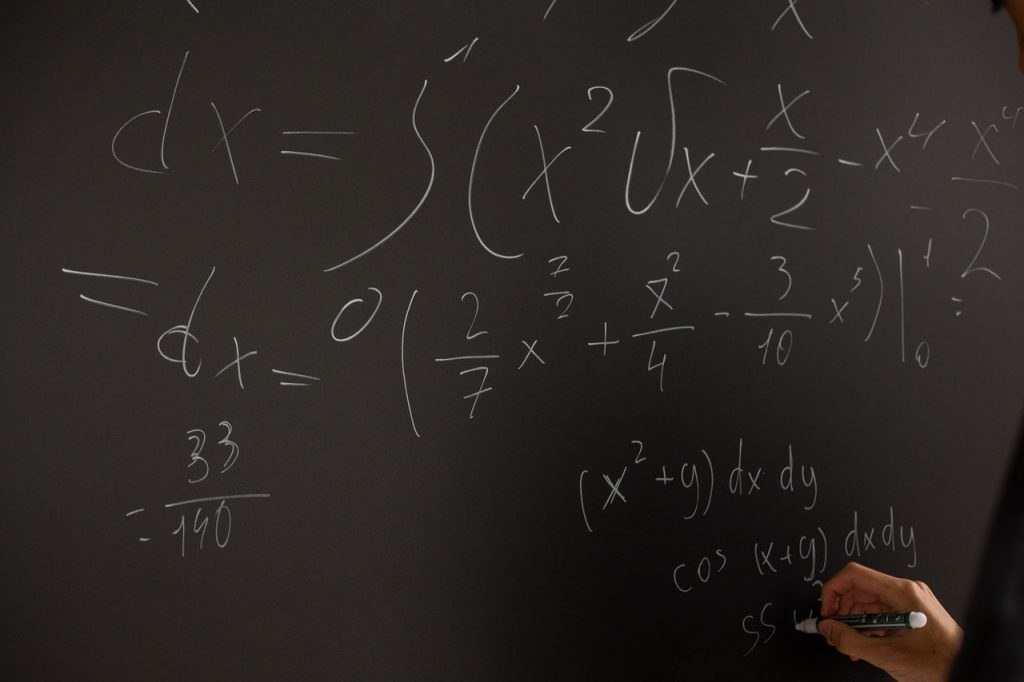Maths can be an extremely frustrating subject, especially for many students. Here we examine some of the problems that students normally face and experience.
1. Remembering the Facts of Mathematics

Source: pexels.com
For many younger students who are less familiar with the rules of mathematics, they struggle with various basic mathematical facts, such as addition, subtraction, multiplication, and division. Without remembering these basic rules, students often cannot move on to solve more complex questions, since a higher order of thinking. They have inconsistency in the mastery of math facts. In secondary school, for example, students are exposed to algebra where numbers are replaced with letters. These letters are often used to represent unknown values. However, to solve the equations, the student has to be able to perform simple manipulation to make the unknown the subject of interest. If the student is unable to recollect the multiplication or division rules, he or she will not be able to find the required solution in a timely fashion. This will certainly have an impact on the final score.
2. Familiarity with Computational Methodologies
It is common for students to experience difficulties during calculations. It could be carrying a different figure during the process of multiplication or division, or listing figures under different columns during long divisions, or writing different signs and symbols. As marks are awarded for applying the correct formula, displaying the right workings, and deriving the correct answers, students who commit calculation errors will lose marks heavily on the step-by-step workings and final solutions.
3. Learning Disabilities
Students who are suffering from dyslexic, have difficulties in comprehension and understanding logic. They have issues with numbers perception and handling arithmetic. To them, it is a real challenge to match, compare numbers and their relationships. They have trouble retrieving number sequences or producing reasonable estimates. They find it hard to accept math vocabulary and translate word problems into numbers. They are unable to remember schedules, sequences of past and future events. They often appear absentminded or lost in their world and have no means to visualize. They also possess limited strategic planning ability.
4. Inattentiveness

Source: hillcenter.org
To do well in mathematical exams, students need to be focused in class and be highly attentive. If they fail to double-check their workings, they tend to arrive at the wrong answer and spend numerous amounts of time correcting for it. For them, memorizing instead of being able to comprehend the mathematical principles leads to frustration for students. This is especially the case when they are unable to recollect the exact steps needed to resolve a problem. Thus, students who practice answering maths problems are better off since they are exposed to more questions.
5. Panic Attacks
Some students experience anxiety when they deal with math. For these students, math can bring about determinantal feelings of fear and negatively impact their capability to do well. The intensity and the lack of confidence exhibited by these students create a mental freeze when they do maths, often causing them to forget things they have so well memorized.
6. Weak Foundation
Students who struggle with mathematics often do so due to their weak foundation, and may not be due to their learning difficulties. They may be forced to move on to more complex topics before they have the requirements, causing them to always lag behind their peers.
7. Math is Abstract

Source: pexels.com
Math tends to be an extremely abstract subject for students to relate to. If they cannot relate to it or find an analogy in real life, they will find maths hard to grasp. As it becomes more complex and advanced, students will find the questions harder and harder to do. They also would have to practice a lot more to understand the more convoluted math concepts.
8. Correct or Wrong
There is no room for mistakes in math. It is often they arrive at the correct answer or veer off track from the start. Often students do not even know how to start. Due to this reason, math can very fast degrade to a mentally frustrating process for students.
9. Cumulative Knowledge is Required
Being a cumulative subject means that maths needs to know what comes before it. Students certainly need to have a solid foundation before they can move on to newer topics. If a student fails to catch on in a topic, he or she will find it hard to understand advanced topics that are built on the previous ones or you can find help on SageSchool.
10. Math is Expected to be Tough

Source: pexels.com
Since students already expect the subject to be difficult, students tend to fall into the case of self-fulfilling prophecy. When they have the mindset that the subject is going to be tough, they will very rapidly throw in the towel. Such negativeness can cause them to have low self-confidence and produce poor results.
11. Memorize Instead of Understanding
When students memorize formulas and the workings without understanding them, they are setting up a trap for themselves. What works for a few example questions typically do not work for the more complex cases set in the examinations. Very soon when they realized old tricks do not work, they become visibly frustrated and stop practicing altogether.
12. Bad Reputation
Since Math has a poor reputation of being difficult and boring, many students are simply not keen to learn about maths. When that happens, they will tend to perform the bare minimum required for them to pass the subject before they look for tasks that interest them. They are not going to do well in their examinations.
13. Practice, Practice, Practice

Source: pexels.com
This is a subject that is not easy for students to acquire or automatically understand. Students need to spend hours and hours of practice to understand the logic and steps to work out maths problems. If they do not have the interest in the first place, they will not be committed to practicing. The lack of practice snowballed and they will experience a harder time keeping up with the subject material since they do not have a strong grip on the basic requirements.







